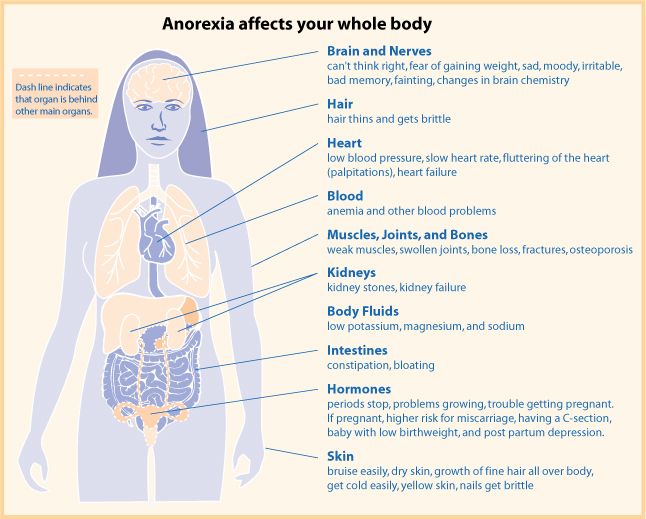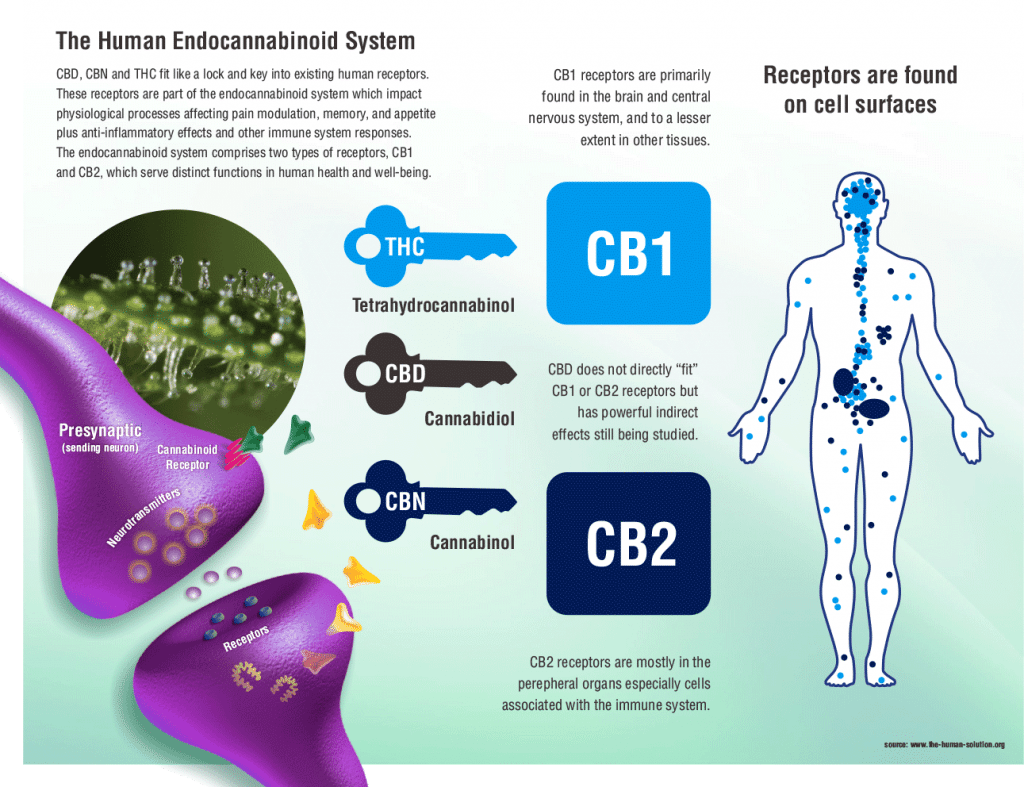Can CBD Oil Help People With Eating Disorders? Scientifically Review
Summarize

Eating disorders are considered psychiatric or psychological disorders and are more prevalent in the teenage population. These disorders are thought to have a medical cause, both due to abnormalities of the brain’s neurotransmitter levels. Let’s take a closer look at the eating disorders.
Introduction to Eating Disorders
Eating disorders are divided into two subtypes. The restricting type is the result of not eating the bare minimum to maintain weight and the binge-eating, or purging type in which the person vomits after eating or takes laxatives, uses enemas, and diuretics to control weight [1].
With this disorder, there is a complicated interplay between biologic, psychological, and social factors, and a specific cause is unknown [5,6]. Negative maternal remarks, family crises like divorces, break-ups, low self-esteem, and difficulty dealing with conflict are considered risk factors.
Signs and Symptoms [2] are:
- Dry skin
- Yellowing of the skin
- Baby-like body hair
- Bluing around the hands and feet
- Breast shrinkage
- Swelling of the glands under the jaw
- Swelling of the feet and legs
- Underweight
- Over exercises
An eating disorder is a set of repetitive behaviors intended to rid the body of the excess calories consumed during eating binges, such as vomiting after meals, laxative abuse, and diuretic abuse. There is an increase in poor impulse control with bulimia [5,6].

How to Overcome Eating Disorders:
- Individual therapy (insight-oriented)
- Cognitive analytic therapy
- Cognitive-behavioral therapy – better for adult-onset Anorexia
- Enhanced cognitive-behavioral therapy
- Cognitive remediation therapy -suitable for motivated people
- Medications to help reduce conditions
- Plant-based remedies such as CBD oil
CBD and the Endocannabinoid System
Cannabidiol or CBD is becoming increasingly popular for a variety of ailments. Chemically, CBD is one of more than 80 chemical substances known as cannabinoids, which are all found in the cannabis plant. Cannabidiol (CBD) is a phytocannabinoid constituent of Cannabis sativa that lacks the psychoactive effects of Δ9-tetrahydrocannabinol (THC).
Hemp is one such cannabis plant. CBD is the second most abundant substance in cannabis, typically representing up to 40% of its extracts. They are considered antioxidants and neuroprotectants. Studies show that CBD affects many neurologic pathways, many of which control feelings of well-being, nausea, and appetite.
Recent discoveries show that the human body possesses an endocannabinoid (endo means inside the body) system that relies on the body’s natural production of cannabinoids to function correctly.
Omega-3 fatty acids, also found in fish oils, are the precursor to the body’s production of cannabinoids. If they are in short supply, the body will not be able to manufacture the number of cannabinoids it needs to maintain a healthy endocannabinoid system. Omega 3s facilitate the growth and healing of the two central cannabinoid receptors, CB1 and CB2.
CB1 is found primarily in the brain, and CB2 is in the immune system. And, CBD oil activates various receptors that delay or reduce the uptake of hormones or neurotransmitters.
CBD also binds to TRPV1 receptors, called the vanilloid receptors which, are known to reduce discomfort. CBD’s effects are partly attributable to its inhibition of adenosine (amino acid) reuptake [7].
Besides relief, the benefits of CBD supplementation are numerous, and when the body is deficient in its natural production, there are various ways to restore the levels. The primary benefits of CBD are stimulation of the endocannabinoid system indirectly, which, promotes homeostasis within the body, and reduces sensations of discomfort
CBD Oil and Eating Disorders
In the one review of eating disorders, the evidence supports the role of leptin, ghrelin, brain-derived neurotrophic factor, and endocannabinoids in the regulation of behaviors associated with anorexia and bulimia.
The research is highly suggestive that changes in the actions of these hormones may play a pivotal role in causing eating disorders by providing a possible link between motivation, the reward center, cognitive functions, and energy levels [8].
The possibility exists that changes in these hormones as a result of behaviors (starvation and vomiting) that cause malnutrition also contributes to the persistence of these conditions [8].
A review conducted by Patel et al., in 2017 explained how selectively increasing the receptors of the eCB system by interfering with eCB-breakdown, via fatty acid amide hydrolase and monoacylglycerol lipase, has been shown to reduce behaviors in rodents and cause changes in human symptoms.

The review also discusses approaches to how eCB receptor are signaled in ways that do not involve the cannabinoid receptor subtype 1; by targeting the CB2 receptor and the receptor vanilloid type 1.
Finally, they concluded that cannabidiol supplementation, while representing a less specific pharmacological approach, could be another way to modulate the eCB system by interacting with neurotransmitter systems.
There is a groundswell of interest in the eCB system as a target for trauma and related disorders based on an extensive and ever-expanding preclinical and clinical literature that supports a relationship between the eCB system, fear and nervousness[7].
Studies show CBD possesses a wide range of therapeutic abilities, including antipsychotic, analgesic, neuroprotective, anti-nausea, and antioxidant properties [9, 10, 11–14].
The potential side effects in humans demonstrated that CBD was well tolerated across a wide range of doses, up to 1500 mg/day (orally), with no reported mental/motor slowing, adverse mood effects, or vital sign abnormalities [15].
At the Conclusion
Eating disorders are poorly understood and linked to underlying deficits in the levels of happy hormones (neurotransmitters in the brain) that cause related disorders. CBD oil replenishes these levels for uptake by the CB1 and CB2 receptors providing antioxidant and neuroprotective benefits. In conjunction with cognitive behavioral therapy and other interventions, people with these eating disorders can expect to develop a healthier attitude and relationship with food and live healthier lives.
Resources
- American Psychiatric Association DSM-5. Diagnostic and Statistical Manual of Mental Disorders. 5th ed. 2013.
- Mehler PS, Birmingham LC, Crow SJ, Jahraus JP. Medical Complications of Eating Disorders. Grilo CM, Mitchell JE. The Treatment of Eating Disorders: A Clinical Handbook. New York: The Guilford Press; 2010. 66.
- Shapiro JR, Berkman ND, Brownley KA, Sedway JA, Lohr KN, Bulik CM. Bulimia nervosa treatment: a systematic review of randomized controlled trials. Int J Eat Disord. 2007 May. 40(4):321-36. [Medline]. [Full Text].
- Treatment of patients with eating disorders, third edition. American Psychiatric Association.
- Kaye, W. Neurobiology of anorexia and bulimia nervosa. Physiology & Behavior 94. (2008). 121-135.
- Bailer, UF, Kaye, WH. A Review of Neuropeptides and Neuroendocrine Dysregulation in Anorexia Nervosa and Bulimia Nervosa. CNS and Neurological Disorders. 2003. 2:53-59.
- Patel, S., Hill, M. N., Cheer, J. F., Wotjak, C. T., & Holmes, A. (2017). The endocannabinoid system as a target for novel anxiolytic drugs. Neuroscience and biobehavioral reviews, 76(Pt A), 56–66. doi:10.1016/j.neubiorev.2016.12.033
- PalmieroMonteleoneabMarioMajb Dysfunctions of leptin, ghrelin, BDNF, and endocannabinoids in eating disorders: Beyond the homeostatic control of food intake, Psychoneuroendocrinology Volume 38, Issue 3, March 2013, Pages 312-330
- Izzo AA, Borrelli F, Capasso R, Di Marzo V, Mechoulam R. Nonpsychotropic plant cannabinoids: new therapeutic opportunities from an ancient herb. Trends Pharmacol Sci 2009; 30:515-527
- Campos AC, Moreira FA, Gomes FV, Del Bel EA, Guimaraes FS.Multiple mechanisms involved in the large-spectrum therapeutic potential of cannabidiol in psychiatric disorders. Philos Trans RSoc Lond Ser B Biol Sci 2012; 367:3364-3378.
- Mechoulam R, Peters M, Murillo-Rodriguez E, Hanus LO.Cannabidiol—recent advances. Chem Biodivers 2007; 4:1678-1692.
- Marco EM, Garcia-Gutierrez MS, Bermudez-Silva FJ, et al.Endocannabinoid system and psychiatry: in search of a neurobiological basis for detrimental and potential therapeutic effects. Front Behav Neurosci 2011; 5:63.
- Robson PJ, GuyGW, DiMarzoV. Cannabinoids and schizophrenia: therapeutic prospects. Curr Pharm Design 2014; 20:2194-2204
- Bergamaschi MM, Queiroz RH, Zuardi AW, Crippa JA. Safety and side effects of cannabidiol, a Cannabis sativa constituent. Curr Drug Saf 2011; 6: 237-249.
The statements above have not been evaluated via the Food and Drug Administration. The efficacy of these merchandise has not been tested by using FDA-approved research. These products are not intended to diagnose, treat, therapy or stop any disease.
Share this post


0